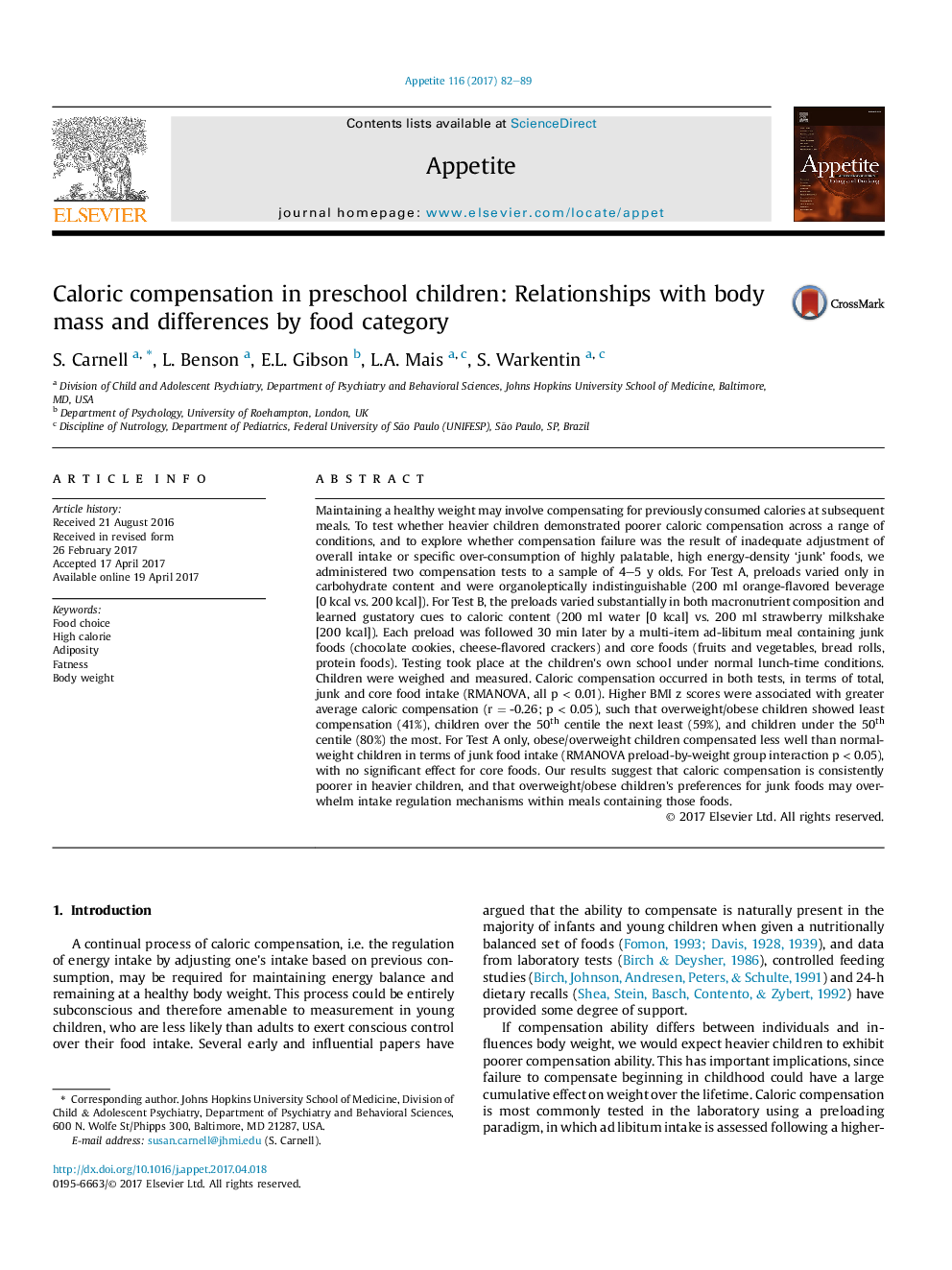| کد مقاله | کد نشریه | سال انتشار | مقاله انگلیسی | نسخه تمام متن |
|---|---|---|---|---|
| 5043985 | 1475364 | 2017 | 8 صفحه PDF | دانلود رایگان |
Maintaining a healthy weight may involve compensating for previously consumed calories at subsequent meals. To test whether heavier children demonstrated poorer caloric compensation across a range of conditions, and to explore whether compensation failure was the result of inadequate adjustment of overall intake or specific over-consumption of highly palatable, high energy-density 'junk' foods, we administered two compensation tests to a sample of 4-5 y olds. For Test A, preloads varied only in carbohydrate content and were organoleptically indistinguishable (200 ml orange-flavored beverage [0 kcal vs. 200 kcal]). For Test B, the preloads varied substantially in both macronutrient composition and learned gustatory cues to caloric content (200 ml water [0 kcal] vs. 200 ml strawberry milkshake [200 kcal]). Each preload was followed 30 min later by a multi-item ad-libitum meal containing junk foods (chocolate cookies, cheese-flavored crackers) and core foods (fruits and vegetables, bread rolls, protein foods). Testing took place at the children's own school under normal lunch-time conditions. Children were weighed and measured. Caloric compensation occurred in both tests, in terms of total, junk and core food intake (RMANOVA, all p < 0.01). Higher BMI z scores were associated with greater average caloric compensation (r = -0.26; p < 0.05), such that overweight/obese children showed least compensation (41%), children over the 50th centile the next least (59%), and children under the 50th centile (80%) the most. For Test A only, obese/overweight children compensated less well than normal-weight children in terms of junk food intake (RMANOVA preload-by-weight group interaction p < 0.05), with no significant effect for core foods. Our results suggest that caloric compensation is consistently poorer in heavier children, and that overweight/obese children's preferences for junk foods may overwhelm intake regulation mechanisms within meals containing those foods.
Journal: Appetite - Volume 116, 1 September 2017, Pages 82-89
